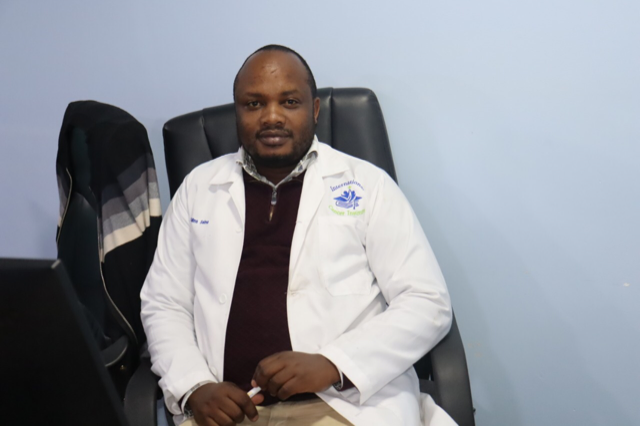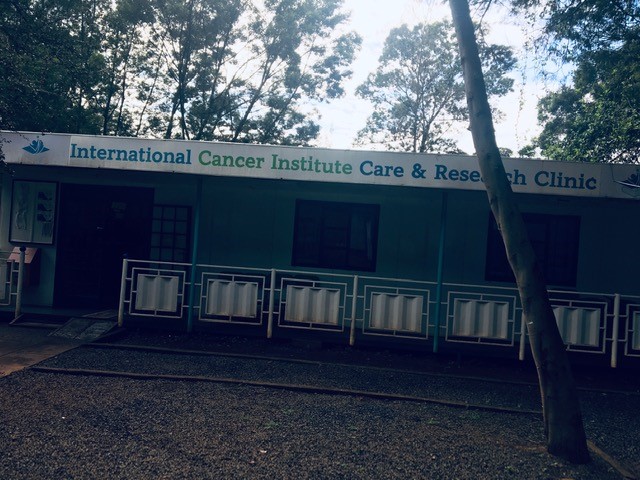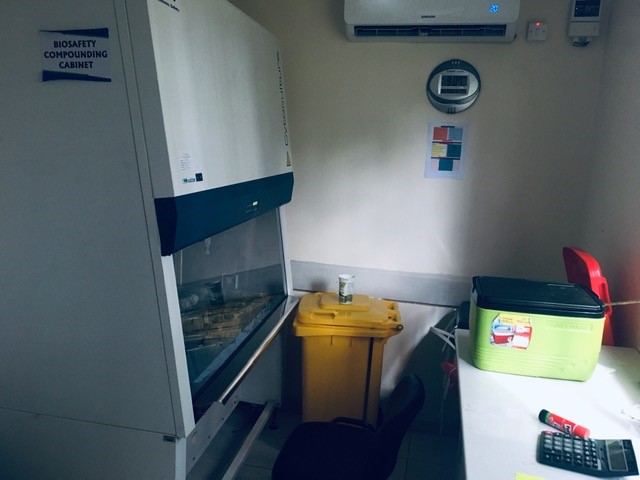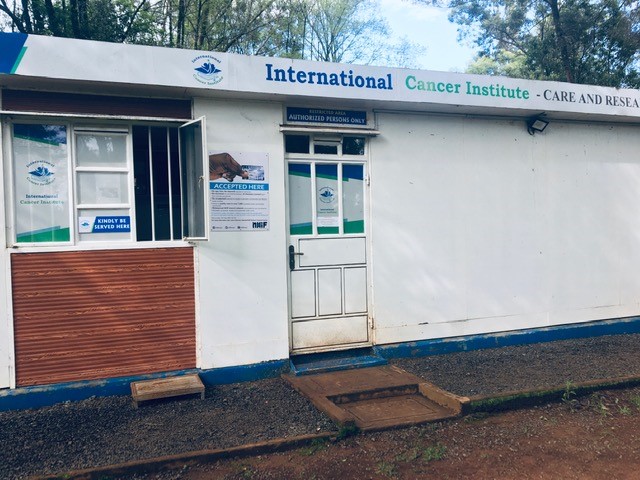
By Dr Collins Saina, Oncology Pharmacist, International Cancer Institute - Eldoret, Kenya
Oncology Pharmacy in Kenya was recognized as a specialty in Pharmacy a year ago, although we still do not have a master’s program in Oncology Pharmacy in Kenya.
Having graduated from the school of pharmacy in the year 2016, I was posted for my internship for one year and during my rotation at the oncology unit, there were a lot of challenges and opportunities as well.
Immediately after my internship I went back to the Oncology Centre to request if they could allow me to volunteer my work there and I was given a job as an oncology pharmacist to work under a senior pharmacist.
As a junior pharmacist in an oncology unit, I was an integral part of a multi-disciplinary team acting as a safety mechanism making sure to go through the patients’ notes to pick up any mistakes, in case the pharmacist and the oncologist misses the mistake. The oncology nurse would also check for mistakes before the patient gets the wrong drug or wrong dose and since oncology drugs has a narrow therapeutic window, a small mistake can have serious negative effects on the patient.
After two years I got another opportunity in an oncology cancer institute which I work for to date. The institute has only an outpatient unit. 
My main duties here start at 8:00 am when I meet with the oncologist, write chemotherapies orders, review drug dosages and ensure accurate and exact figures. In the case of any new patient who is starting chemotherapy treatment, I sit with my patient and explain to him/her thoroughly the treatment journey, cost of medication, side effects that can be expected and their management, how to use oral anticancer medication at home and the importance of treatment adherence.
Once all the patients have been reviewed for treatment, I take with me all the treatment files to the chemotherapy compounding room where we use a Biosafety Class IIB. I change before entering the compounding room, get all the drugs that I need, I compound drugs for one patient at a time until I finish with all the files.
My technician will go through all the compounded drugs to make sure that the right drugs, dosage and labelling have been done. In the chemotherapy compounding area, the oncology nurse will go through all the drugs confirming with the patient’s treatment files, if they confirm to be correct this being the last check, they start chemotherapy administration.
Working as an Oncology Pharmacist in Kenya has a lot of challenges:
1. Medical insurance gives patients a small amount, making them top up for the treatment
2. Oncology medications are very expensive
3. A lot of poor-quality medication
4. Supply chain takes a long time for medication to be delivered to the hospital.
Q&A with Collins Saina
Netty, ISOPP newsletter editor, asked Saina some questions after reading the interesting article.
1. How many patients do you see in a normal day or week?
30 patients in a week who receive chemotherapy treatment; those who come in for consultation, second opinion and the study participants for clinical trials about 15 per week
2. Do you make everything on site at the point of treatment?
All the chemotherapy is compounded within the site, we don't have permanent structures, we use containers.
3. Is the compounding room near to the administration area?
The compounding room is situated in a different container from the administration area which is in the clinic area.


4. Do you write the prescriptions by hand or on a computer? What is a chemotherapy order?
All our prescriptions are written by hand, we start by giving patients premeds with hydration, then if the regimen contains a vesicant, we start with it followed by non vesicant.
5. Do patients refuse some supportive medicines (like antiemetics) due to cost?
They don't refuse, the only issue comes when they cannot afford to pay for it, as an institution if the regimen the patient receives needs supportive medication and they cannot afford it, we waive the cost and give it to them.

Comments
Hello Dr. Collins Saina,
Hello Dr. Collins Saina,
Thank you for your post. Would it be possible to e-mail you some follow-up questions? Please let me know.
Kindly,
Lauren